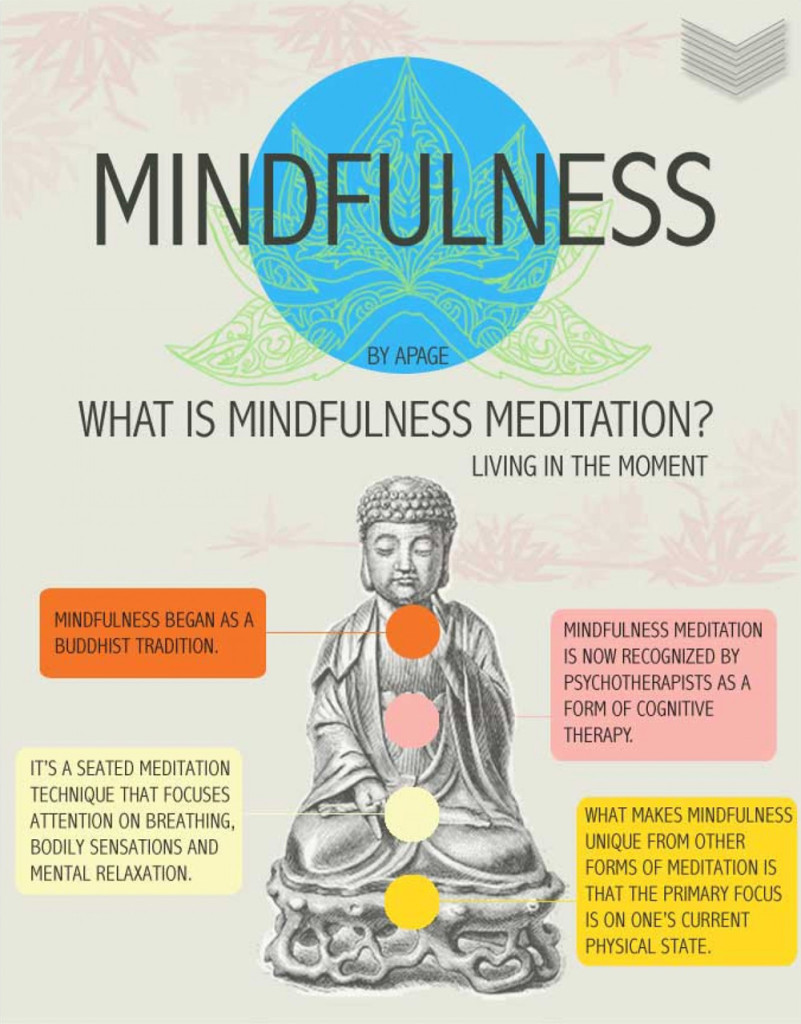Mindfulness Meditation: Awareness, compassion, acceptance
Mindfulness Meditation is a part of an ancient Buddhism practice which includes vipassana, satipahana and anapanasati as forms of meditation. Mindfulness itself is the non-judgemental acceptance of one’s emotions which focuses one’s attention on the present moment, thoughts and actions creating full awareness of one’s being. It is also an attribute of consciousness believed to promote one’s well-being.
Mindfulness meditation is practiced sitting cross-legged on the floor or a chair, with the back absolutely straight and the focus concentrated on one’s breathing. If the thoughts begin to scatter, they are brought back to focus on the breathing which in turn helps increase awareness of one’s surroundings and body and mind. Neural research highlights the benefits of mindfulness meditation, a few being increased attention span, emotional regulation and body awareness. It also contributes to creating a more coherent and healthy sense of self-identity by instilling self-acceptance and compassion and also helping in character analyzation and rectification.
One can start this practice with a mere 10 minutes a day. As the practice becomes more and more regular, it becomes easier to maintain one’s focus on the breathing and attention span increases greatly. Also body stability and comfort in sitting for longer stretches increases and thus the mediation periods can be increased. Once one has mastered focussing on the breathing, the practice can be extended to focus on one’s feelings, thoughts, emotions and ideas.
Mindfulness meditation helps cure mental illnesses such as depression and anxiety. Mindfulness interventions are also helpful in reducing worry and stress.
The practice of mindfulness meditation gives us an accurate sense of self and a glimpse of our inherent wisdom. It is not directed towards changing our present state, in fact it helps us focus more on the present, our thoughts, actions and feelings and gives us a sense of what is truly important which in turn reduces stress that the unnecessary,, unimportant thoughts and emotions trap the mind into. So, instead of altering our reality, it gives us an opportunity to introspect and better the reality that we are already living with.
Buddha believed that the source of our suffering is caused when we try to escape our present state of sadness by holding on to whatever shreds of happiness we have. However, instead of focussing on the joy and perpetuating our happy state, our focus is directed towards escaping the misery and thus this has the exact opposite effect from what we expect. Also, in the process of shielding ourselves from misery, we often create a false identity for ourselves to hang on to our notion of happiness and that creates more problems when we actually have to face our true reality.
Thus mindfulness meditation helps us become aware of our present state, develop compassion towards our situation and of those around us, and also helps us accept our truth and our identity ultimately resulting in a positive outlook towards life.
This age-old practice has a lot of relevance in our present times, especially in the kind of busy lives that we, 21st-century career maniacs, live.









